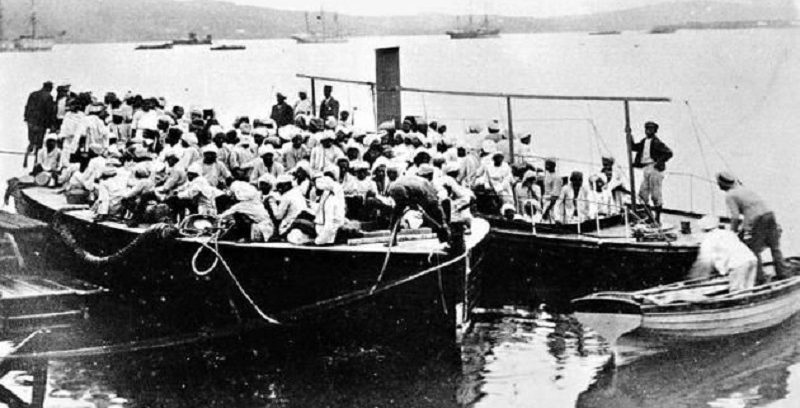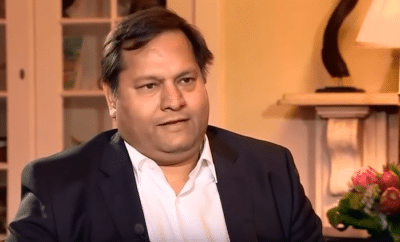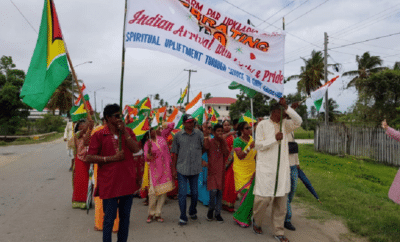Immigration
Indians in South Africa Mark 100 Years of Abolition of Indentured Labor

Indentured workers brought to Natal in South Africa
sahistory.org.za
Indian laborers were brought to Durban in 1860 to work in sugarcane fields.
The centenary of the abolition of bonded labor by the British Empire in South Africa was observed by
the 1860 Heritage Centre, a museum and archive of the indentured laborers, in Durban this week.
Indians were brought to Durban in 1860 as indentured laborers to work in sugarcane fields. They
were promised wealth for working on farmland for five years, but the promises were not fulfilled.
At an event held in the city to observe the occasion, difficulties faced by the fifth and sixth generation
Indians in South Africa were discussed, even as the government is going pro Black African and
tensions between Indians, other people of color and Black Africans are mounting.
“The fact that they were brought out here under false pretenses is what hurts the most. They thought
they would go back after five years with lots of wealth and that didn’t happen,” Sylvia Garib,
whose great grandmother came to what was then known as Natal in 1860, said.
The 1860 Heritage Centre was handed over to Indians in 2014 and it opened its gates to the
common public in May 2017. In November 2016, the center celebrated the 156 years of arrival of
Indians in South Africa in Durban.
Meanwhile, tensions between the Indian diaspora and the Black African community has been
growing. The KwaZulu-Natal African National Congress (KZN ANC) wants to stop Indians and other
colored people from getting state contracts of more than R50 million.
“The contribution of South African Indians in the struggle against apartheid is not widely known in
contemporary South Africa today particularly among the youth,” psychologist and author Devi
Moodley Rajab said, according to a PTI report.
Professor Brij Maharaj, an academician at the University of KwaZulu- Natal, said that Indians have
had to face calls to return to their country even though they have been citizens since 160 years, the
news agency added.
“In South Africa, Indians constitute a vulnerable ethnic minority, and have been sandwiched between
the economically dominant whites and the African majority,” Maharaj said. “Historically, there have
been tensions between Indians and Africans because the former enjoyed a relatively privileged
position compared to the majority, primarily because of community survival strategies, and their
religious and cultural heritage,” he said.
Calls have been made to give more preference to Black Africans as part of the Black Economic
Empowerment (BEE) policies, which includes Indian, colored, and Chinese citizens who were in
South Africa before 1994. The policies are meant to offset the damage done by Apartheid over
decades.
Indians have often been accused of treating Africans disrespectfully. Economic Freedom Fighters
commander-in- chief Julius Malema said in July this year that Indians in Natal should respect
Africans. “They are ill-treating them worse than Afrikaners will do. We don’t want that to continue here in Natal. This is not anti-Indian statement, it is the truth,” he was quoted as saying by Mail &
Guardian.
Meanwhile, in the run-up to changes expected to happen in the government in December, when
ANC’s Jacob Zuma is expected to step down from his party position due to numerous corruption
scandals, the province of KwaZulu-Natal is witnessing incidents of violence. The province, which
happens to be the ANC’s heartland, has faced the major brunt of violence because whoever controls
the area is likely to be the chief of the party.




1 Comment
You must be logged in to post a comment Login